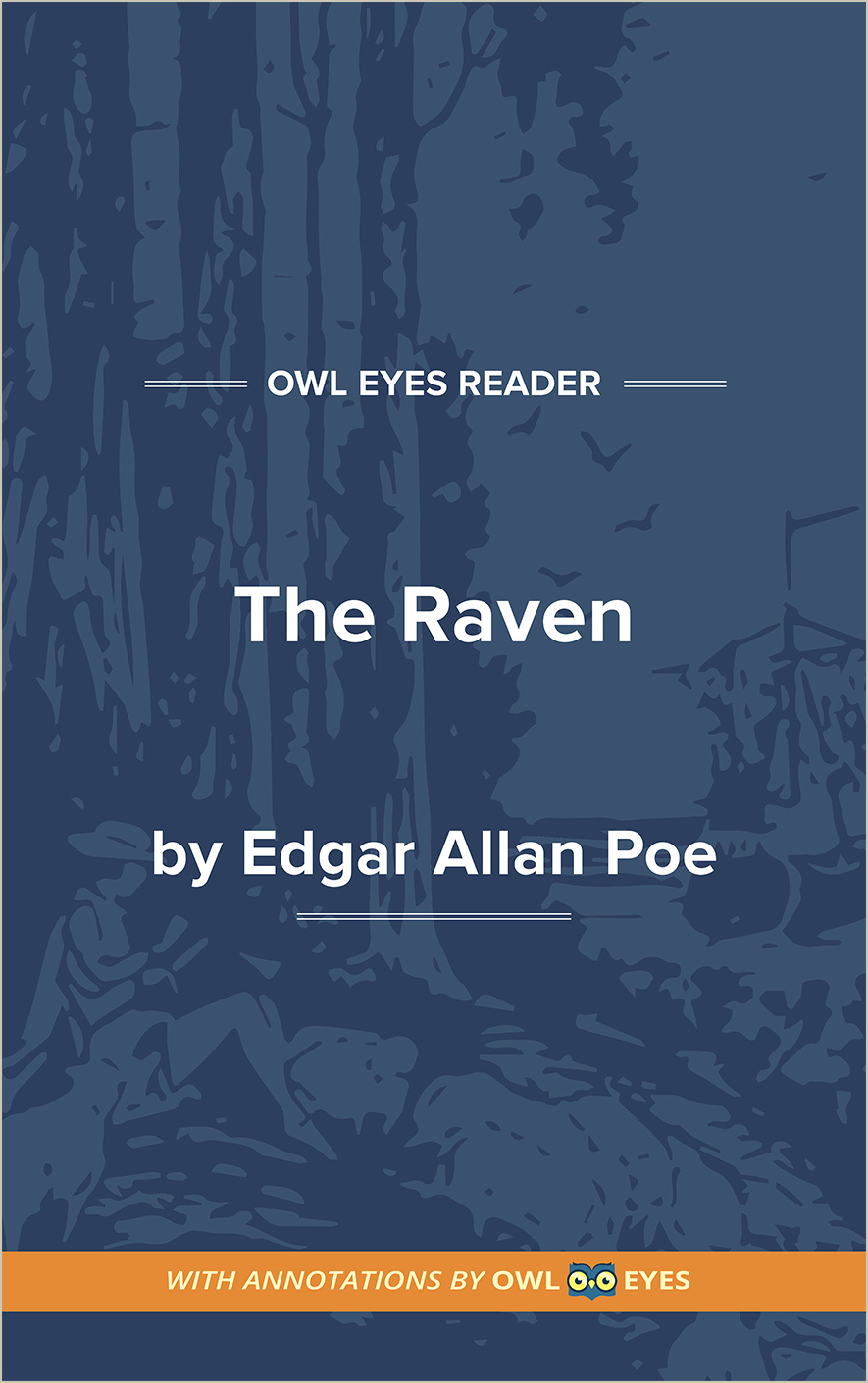Analysis Pages
Themes in The Raven
Death: “The Raven” explores death in its physical, supernatural, and metaphorical manifestations. The narrator mourns the physical death of his beloved, Lenore. He talks about other friends who have died, and he contemplates his own death. The Raven symbolically represents the personification of death itself and serves as a reminder of what the narrator has lost and his impending fate. The entire poem explores the metaphorical death of hope and the descent into melancholy that this death causes.
Masochism: “The Raven” explores the human tendency towards self-torture and self-destruction. The narrator continues to ask the Raven questions he knows the bird will answer negatively so that he can dive deeper into his sadness and mournful longing.
Supernatural: The poem asks whether supernatural things, such as the Raven, cause fear or fear itself gives power to supernatural things. For this reason, the poem presents a character whose imagination overpowers his reason and imbues the bird with menacing power.
Themes Examples in The Raven:
The Raven
🔒"till his songs one burden bore..." See in text (The Raven)
"She shall press, ah, nevermore!..." See in text (The Raven)
"Perched upon a bust of Pallas..." See in text (The Raven)
"“other friends have flown before..." See in text (The Raven)

